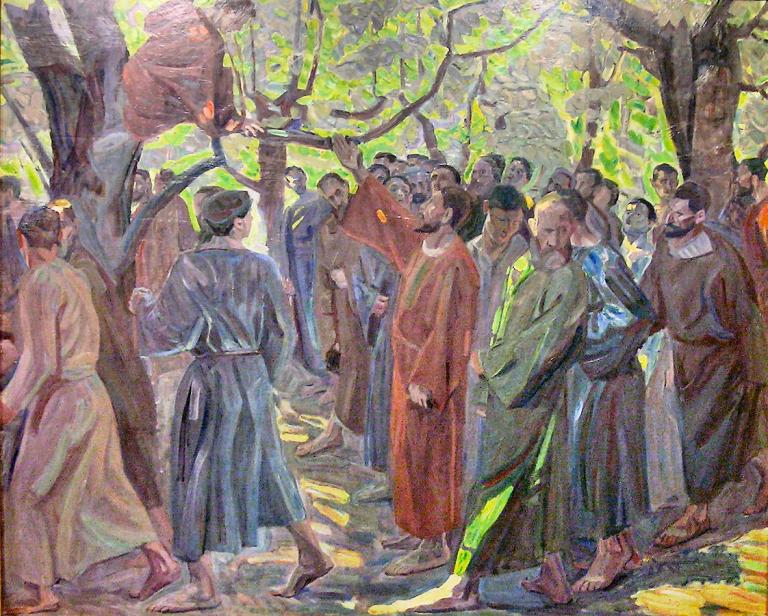
One of the most striking features of Jesus’ ministry is his extraordinary patience with ordinary people like you and me. Ordinary Time in which we find ourselves presently in the Church Calendar is when the mystery of Christ penetrates every area of our lives so that we grow into Christ’s fullness. For those of us who think we have already attained fullness and graduated in Jesus’ leadership school, we should ask ourselves how patient we are with those we lead.
Certainly, great leaders are demanding of themselves and their followers. Paul beat his body and made it his slave so that he would not be disqualified in the faith race (See 1 Corinthians 9:27). Jesus placed demands on his followers: if anyone would come after him and be his disciple, he must deny himself and take up his cross daily and follow Jesus all the way (Luke 9:23). And yet, great leaders who follow Jesus also demonstrate great patience with their followers, just as Jesus did and does. As I argued in “Jesus Acts Extraordinarily in Ordinary Time,” Jesus demonstrates extraordinary patience with his followers, who are slow to understand and trust in him. Jesus kept giving Peter chance after chance, as when he spoke out of turn or took the wrong turn—even a U-turn. He kept pursuing Peter and helped him get back on the path and eventually finish the race.
The Christian journey is very long. It involves a daily grind of ups and downs, mountain climbs and avalanches, victories and failures. Do you allow others to pick you up when you stumble and fall? Do you pick up others when they do the same? Do we go in search of those who are lost, stop along the way and call them down from the trees in which they are perched, like Jesus did with the chief tax-collecting sinner Zacchaeus (Luke 19:1-10)? Do you write people off quickly, and mutter like the crowds did when Jesus paused in his journey to dine with Zacchaeus (Lke 19:7)? Or do you give them second, third, and possibly fourth, fifth, sixth, and even seventy-times-seven chances (Matthew 18:22), just like Jesus does with us?
J. Oswald Sanders wrote in Spiritual Leadership that
A leader shows patience by not running too far ahead of his followers and thus discouraging them. While keeping ahead, he says near enough for them to keep him in sight and hear his call forward. He is not so strong that he cannot show strengthening sympathy for the weakness of his fellow travelers. “We who are strong ought to bear with the failings of the weak,” Paul wrote in Romans 15:1.
The person who is impatient with weakness will be ineffective in his leadership. The evidence of our strength lies not in the distance that separates us from other runners in in our closure with them, our slower pace for their sake, our helping them pick it up and cross the line.
If we struggle with patience, take a look back to those times when others have demonstrated extraordinary patience with us when we had fallen by the wayside. My parents named me after Paul, but I often relate more to Peter given all his blunders in the faith journey. My parents and others who discipled and nurtured me in my faith over the years, including pastors, Sunday School teachers, Navigator mentors, professors and advisers, could have washed their hands and written me off. But they didn’t, and because they didn’t, they help me see patient Jesus and help me hold out hope for others when they fall behind in the race.
Yes, great leaders are demanding of themselves and others. This includes demanding patience in caring for those they lead. Just as Jesus demonstrates extraordinary patience with those who follow him, may we follow his lead and practice patience with those who follow us. Run hard as leaders. But don’t run your followers over or to the ground, or run too far ahead so that they give up. Slow down a bit to allow them to catch up and keep going until together we cross the finish line when faith becomes sight.












